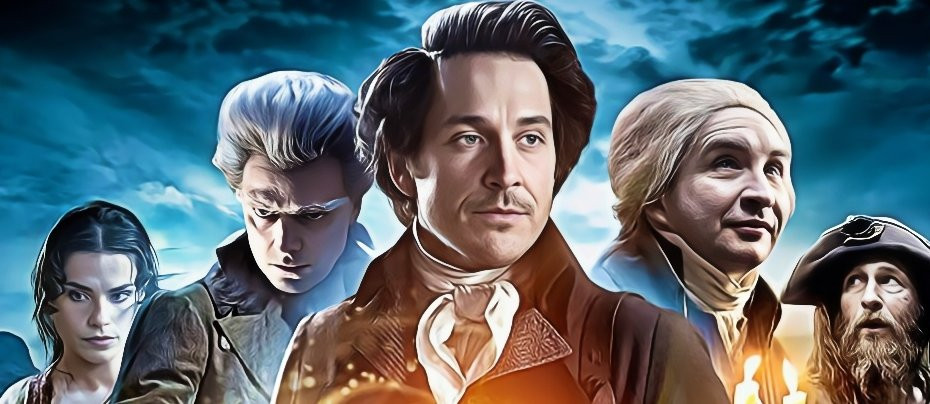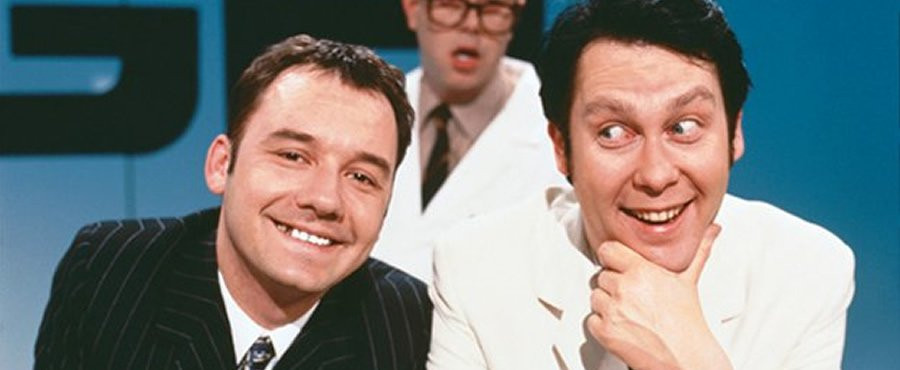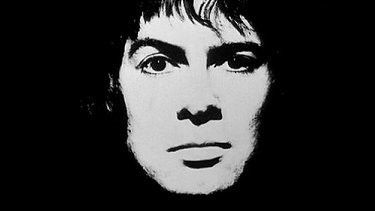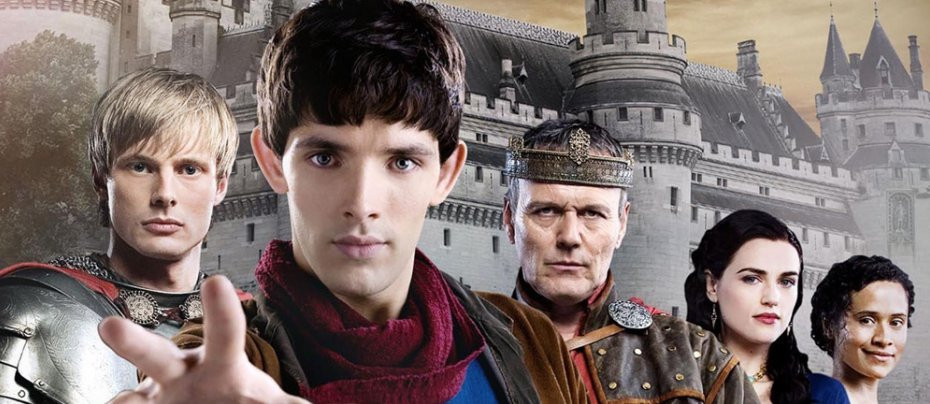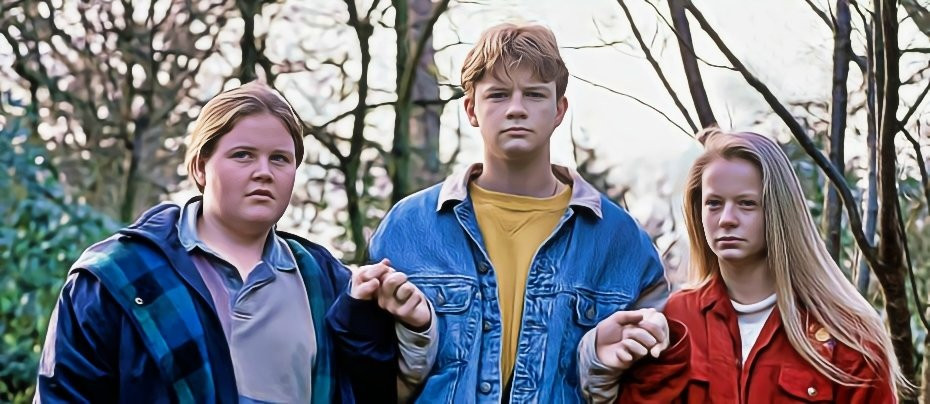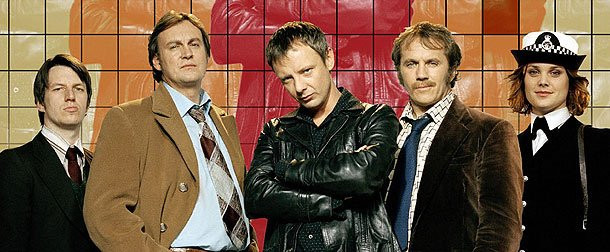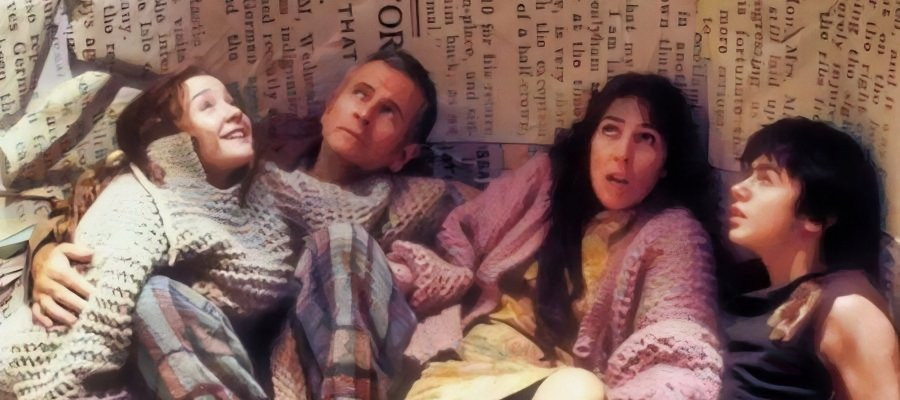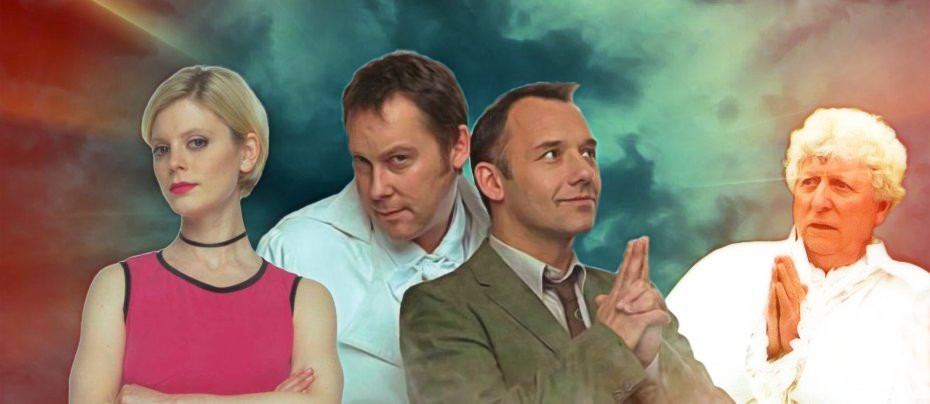
Randall & Hopkirk (Revived)
‘The biggest problem with the series is, sadly, Reeves and Mortimer themselves.’
Randall & Hopkirk (Deceased) – (2000) review by Daniel Tessier
Randall & Hopkirk (Deceased) was one of the stranger series to come out of the BBC in the early part of the century. It was one of the various BBC attempts to recreate the spooky Saturday evening drama slot once inhabited by Doctor Who, along with Strange and Sea of Souls, until the Beeb finally went and brought back Doctor Who itself. A peculiar hybrid of mystery, fantasy, horror and comedy, it was ostensibly a remake of a fondly remembered series from the late sixties but changed in so many ways it became utterly unique.
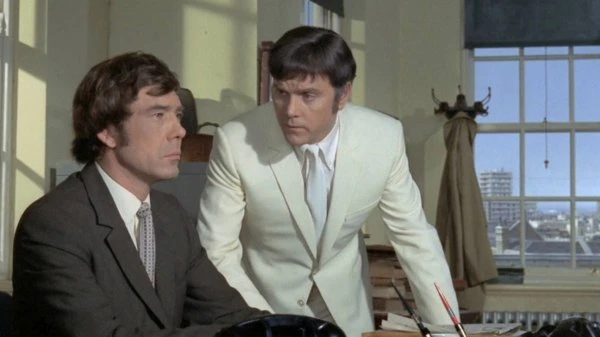
The original Randall and Hopkirk (Deceased), created by Dennis Spooner for ITC Entertainment, was a bit of an odd beast itself. A detective series in which one of the sleuths was dead, haunting his partner as a ghost and invisible to everyone else, stood out against the many other crime shows and thrillers of the time. In spite of the clever concept though, during its original run from 1969-70, the series rarely made the most of its supernatural set-up, preferring to deal with more worldly, if sometimes rather strange, mysteries.
Thirty years later, Simon Wright obtained the rights to the concept for 'Working Title Television'. Talks of a remake initially focused on the thriller and crime aspects, but over time, Wright began to see the potential in something stranger and more comedic. He suggested a comedian should play either or both Randall and Hopkirk, putting the series down a more frivolous path. WTTV's search came to the attention of the comedy duo Reeves and Mortimer, well-known through the 1990s for their madcap, somewhat surreal style of comedy. The stars of Vic Reeves Big Night Out, The Smell of Reeves and Mortimer and Shooting Stars put themselves forward for the lead roles, with WTTV snapping them up.
It was the comedy duo who then suggested Charlie Higson for the job of showrunner and lead writer of the series. Best known at this stage for writing and appearing on the rapid-fire sketch programme The Fast Show, Higson had also produced and written for Vic and Bob's programmes, as well as Harry Enfield's Television Programme. However, his talents stretched beyond sketch comedy, as he had by 2000 already published four thriller novels and co-written the script for the erotic thriller Suite 16. Higson joined his anarchic collaborators to create a new version of Randall & Hopkirk Deceased) that was considerably spookier, and considerably stranger, than the original.
Initially, Reeves was intended to play Jeff Randall, and Mortimer cast as the ghostly Marty Hopkirk, reflecting the image of the lanky Mike Pratt and diminutive Kenneth Cope in the original. It was quickly realised that Reeves's weird, energetic style of performance made him better for the supernaturally endowed Hopkirk, while Mortimer's more laid-back, world-weary approach better fit with Randall. Joining them is Jeannie Hurst, played by the gorgeous Emilia Fox (Silent Witness, Pride and Prejudice, Merlin) who brings a touch of class to the firm. Jeannie was part of the original series, played by Annette Andre, but the remake considerably revamped her role. Rather than becoming a mere secretary for Jeff upon Marty's death, Jeannie now became his full-fledged partner in the firm and was the action hero of the series as well, proficient in kickboxing and karate (which is how you could tell they were really going for a strong female lead in the late nineties).
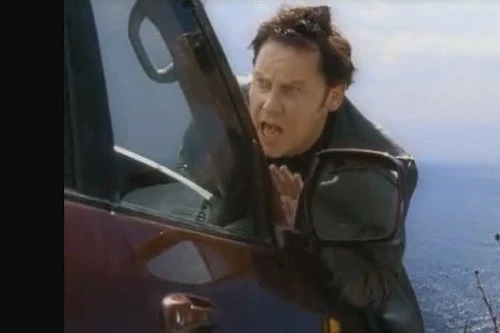
In the first episode, “Drop Dead,” Marty is murdered while the duo are on a case, even as he prepares for his wedding to Jeannie. Originally, Jeannie had been Marty's widow; killing him off just before the wedding was intended to make the most of the sexual tension between Jeannie and Jeff. Their feelings for each other grow as they work together, with Jeff torn between his loyalty to his late best friend, and his increasing attraction to his new business partner. Given that she'd not technically be married in any case, there's no real difference between widow and near-miss fiancé, but I guess for Jeff it made it that little bit easier to overcome his guilt... until Marty periodically materialised to remind him.

Unlike the original series, the remake expanded its premise by exploring just what went on for Marty when he wasn't hanging around on Earth keeping an eye on Jeff. Much time is spent on the Other Side, largely in the domain of Mr Wyvern, Marty's mysterious and eccentric instructor in the ways of the afterlife. Played by none other than fourth Doctor Who and occasional Sherlock Holmes Tom Baker, Wyvern's cryptic lessons formed the backbone of many episodes, with Marty learning some new spooky power that would turn out to be just what was needed to solve a case or save Jeff's neck before being conveniently forgotten all about the following week. Baker appeared as Wyvern in all but the first episode, giving a characteristically odd performance that channelled more than a little of his Time Lordly past.
The only further regular cast member was Higson himself, who appeared briefly in every episode, usually as a different character each time. Only two of his roles were repeated: Gomez, the kindly barman in Limbo, where Marty could mingle with other spirits; and Bulstrode, a quietly sinister civil servant hinted to be up to all sorts of nasty goings on. Additionally, Higson acted as, of all things, a hand double for Mortimer, whose badly bitten fingernails made his unsuitable for close-ups. Higson himself claimed that, “Bob's hands are not that attractive. Mine, however, are quite gorgeous.”

The biggest problem with the series is, sadly, Reeves and Mortimer themselves. Comedy greats they may be, with a fine-honed double act between them, but they are not skilled actors. They can carry the silly parts – of which there are many – perfectly well, but when it comes to the more dramatic parts, they struggle. Combined with some cheap and primitive visual effects, puerile humour and often cliched dialogue (although one expects this to be deliberate), their amateurish performances give the whole affair the feel of a kids' show. This actually isn't a problem in itself, since this would probably work perfectly well as a children's programme, but it's at odds with the increased horror and sex that the series used to mark it as more mature than the original.
Watching the series, Emilia Fox and the many talented guest stars seem to be dumbing down their own performances. It's hard to watch it without wondering if they've been given some directive to ease off and not show up the two male leads. There are exceptions: the first episode features a young David Tennant giving it everything he's got as the disturbed artist Gordon Stylus. There really are some big names involved through the course of the series, with some very respected actors rubbing shoulders with the cream of the British comedy community. The first episode features Charles Dance of Game of Thrones and much more. Perhaps most impressive is the second episode, “Mental Apparition Disorder,” which features Martin Clunes (Doc Martin, Men Behaving Badly); Fiona Allen (Smack the Pony, Waterloo Road); the prolific and celebrated Steven Berkoff (The Borgias, War and Remembrance); classic leading man Richard Todd (The Dam Busters, A Man Called Peter) and a post-Blackadder, pre-House Hugh Laurie.
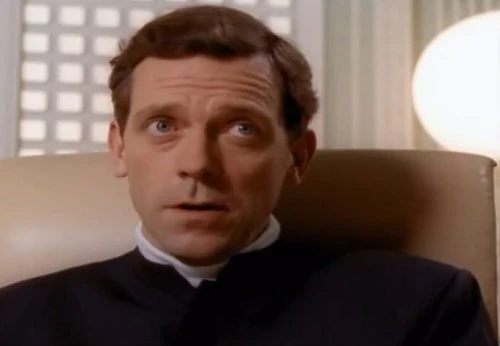
With Jeff taken to a high-class mental retreat when Jeannie catches him talking to himself (that is to say, Marty), and a subplot involving hypnotism, “Mental Apparition Disorder” is a remake of the original series episode “A Disturbing Case.” The first three episodes also feature Jessica Hynes (then Stevenson), of Spaced, Twenty-Twelve and Years and Years, in the role of Felia Siderova, Jeff and Marty's secretary, who is now leaving to have a baby and return home to Latvia (although where that outlandish accent is from, I couldn't say)… The third episode, “The Best Years of Your Death,” sees the team investigate the brutal boarding school attended by Jeannie's nephew. With Jeff masquerading as a teacher and Jeannie as a nurse (you'd expect a lot of boys to be feigning illness at that school), it's a farcical affair with some horror dressing, with guest appearances by Peter Bowles (To the Manor Born), Phyllis Logan (Downton Abbey) and Anthony “C-3PO” Daniels.
More familiar comedy faces from the nineties and noughties pop up throughout the series, with Higson's connections bringing almost every regular member of The Fast Show to the party. Mark Williams (Red Dwarf, the Harry Potter series), Arabella Weir (Two Doors Down, Posh Nosh), Simon Day (Pixelface), and John Thomson (Cold Feet, Men Behaving Badly) all appear. Paul Whitehouse, a frequent collaborator with Vic and Bob and known for his many productions with Harry Enfield as well as one of the most recognisable faces of The Fast Show, appears in episode five, “A Blast from the Past,” as the ghost of Sidney Crabbe, a vicious gangster killed by Marty's father thirty years earlier. The episode lets us explore the world of Limbo at length, as Crabbe goes after Marty for revenge against his father, showing us increasingly surreal realms of the dead.
Whitehouse also co-wrote the script for episode four, “Paranoia,” a political conspiracy thriller where the joke is that the supposedly top-secret info is all public knowledge. Various groups try to bump off the informant thinking he knows something that's actually valuable, their attempts becoming increasingly farcical. Alexis Denisof (Angel, Grimm, How I Met Your Mother) adds a touch of Hollywood, for once using his natural American accent on a British production, rather than the other way round. The real Hollywood star for the episode, retrospectively, is Simon Pegg, following his Spaced co-star Jessica Hynes, his recent success making him the biggest star to have appeared on the series. It would have been one of the cleverer episodes, had the entire thing not devolved into fart gags by the final act.
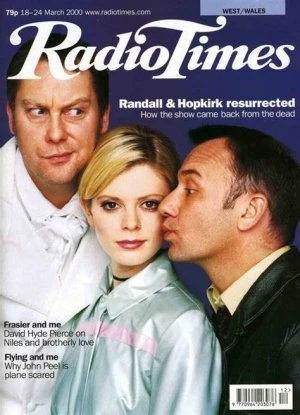
The sixth and final episode of the first series is “A Man of Substance,” which plays into the dramatic and supernatural side of the show more than the comedy and works all the better for it. Searching for a missing man in the archaic village of Hadell Wroxted, Jeff and Marty are amazed and bemused to discover that the villagers can all see Marty. (Of course, it takes them a while to realise he can be seen.) Hadell Wroxted is a Brigadoon-type place, cut off from the world and seemingly impossible to escape, and wrapped up in strange, inexplicable customs. There's a touch of Hot Fuzz to it, as the local bobby executes unwary tourists for dropping litter and similar minor infractions. (He's played by Richard Ridings, recognisable to kids at the time as the rat from The Ink Thief, but now indelibly the voice of Daddy Pig on Peppa Pig.)
It becomes clear that the gruesome villagers, played by familiar faces such as Gareth Thomas (Blake's 7, Torchwood), Hugh Lloyd (Hugh and I), Elizabeth Spriggs (Simon and the Witch) and Ralph Riach (Fortitude, Hamish Macbeth), are ghosts of a sort, trapped forever beyond the passage of time thanks to a curse made upon the village centuries ago. Hovering somewhere between life and death, they are able to interact with Marty, who is also able to physically manifest, and quickly becomes tempted by the pleasures of the flesh – be it a nice pint or the charms of Jennifer Calvert (Red Dwarf, Stargate SG-1). It becomes clear that the sleuths have been led into a trap, one that will lead to Jeff's death and Marty's eternal damnation – unless Wyvern can break all the rules and get Jeannie to rescue them.
“A Man of Substance” is a great end to the first series and stands above the previous episodes in terms of quality. It's also written as a clear end to the series, with Marty making his peace and moving on... which was hastily unwritten when, eighteen months later, a second run aired, with Gareth Roberts joining as co-writer.
The season began with “Whatever Possessed You,” a supernatural farce in which Jeff and Jeannie are employed to investigate mysterious deaths in an old-fashioned hotel. A time-slip within the hotel's walls begins to drag the guests back to the 1950s, a burning figure haunts the halls, and a lovestruck spirit searches for a new body to inhabit. It's classic ghost story stuff and works well. On the other hand, the tension between Jeff and Jeannie is finally, briefly resolved when they sleep together while Jeannie is possessed, which is just a bit problematic all round. There's a great guest turn by Hywel Bennett (Neverwhere, Shelley), at his disagreeable best as the highly cynical Roger Whale, who just happens to be psychic and able to interact with Marty. Other guest stars in this busy hotel include Nichola Macauliffe (Surgical Spirit), Janet Henfey (The Singing Detective, As Time Goes By) and Nina Young (Pilgrim's Rest) as the desperate spirit Sonia Cronenberg. (The major character names in the episode reference horror directors.)
Also making an appearance in the episode is David Walliams, one-half of the Rock Profile/Little Britain duo shortly before they became ubiquitous. His comedy partner, and frequent Vic & Bob collaborator Matt Lucas appears in the very next episode, which has the delightfully lurid title “Revenge of the Bog People.” Lucas portrays Nesbit, a cheeky ghost who is placed under Marty's care and tries to get him to enjoy his afterlife a bit more. The main plot sees an old flame of Jeff's, played by Anna Wilson-Jones (Victoria, Hotel Babylon) recruit him to help solve her father's murder. While we're wondering why also these beautiful posh women fall for Jeff, we might end up overlooking the other mysteries surrounding Freya. (She dresses all in white, never seems to touch anything, and no one ever speaks to her but Jeff. Can you guess?)
It's a strong episode, set largely in a museum full of eccentrics including the prolific Celia Imrie (dinnerladies, Agatha Christie's Marple, The Darling Buds of May) and Freddie Jones (Emmerdale, Silas Marner, The Ghosts of Motley Hall), as well as Adam Buxton (The Adam and Joe Show, Hot Fuzz) and the aforementioned Mark Williams. The museum is haunted by the ghosts of a family preserved whose bodies have been uncovered from a peat bog and manages a surprisingly touching ending. The only script of the series to be co-written by Kate Wood, it's one of the best episodes.
Another strong instalment is episode three, “O Happy Isle,” set on the ironically named Strait Isle off the coast of Scotland, it looks like we're set for a pastiche of The Wicker Man, but it goes in a very different direction. While investigating an alleged suicide, the sleuths uncover a bizarre conspiracy. The local beer has been laced with a chemical that affects hormone levels – causing Jeannie to get a little overexcited shall we say, while the men of the isle find themselves no longer interested in women at all. By rights, “O Happy Isle” should be cringeworthy, but it never slips into sexism or homophobia, and indeed, a lot of the men seem quite happy that their sexuality has been shifted.

George Baker, still best remembered as Inspector Wexford in the then recently ended Ruth Rendell Mysteries, portrays the Lord of the Isle, who is trying to turn the populace gay as the first step in a plan to stop humanity breeding. John Sessions (Spitting Image, Stella Street) and Rupert Vansittart (Heartbeat, Game of Thrones) also appear, along with Paul Young (Still Game, No Job for a Lady) as Inspector Woodhuish. Jeff is unaffected by the beer, due to being unable to imbibe alcohol while taking antibiotics for a dodgy tooth but proves himself an ally to anyone questioning their sexuality. He's able to brush off the advances of Woodhuish, even when the inspector reveals he doesn't drink.
The fourth episode, “Pain Killers,” sees the show at its most Doctor Who-like, in an adventure at a secret research laboratory run by the marvellously-monikered Colonel Anger. Played by the renowned Sir Derek Jacobi, Anger is as archly sinister as you'd expect, easily the best villain that the series produced. Hiding his darker personality behind amiable eccentricity, he comes across as a dry run for Jacobi's brief turn as the Master on Doctor Who six years later. It's not surprising that this episode is so Doctor Who-like, given that additional script-work was provided by Mark Gatiss (himself one of the very few actors to pay both the Doctor and the Master, alongside Jacobi). While Anger works to attain immortality, other guests include Dervla Kirwan (Ballykissangel; Goodnight, Sweetheart) as his randy assistant, Duncan Preston (Acorn Antiques, Emmerdale) and Alibe Parsons (Space: 1999). While there's a lot of silliness and a fair bit of smut, “Painkillers” remains a top episode for horror-tinged adventure.
Episode five, “Marshall and Snellgrove,” is a silly but entertaining adventure. Another Fast Show alumnus, Colin McFarlane (Outlander, Torchwood) teams up with Shaun Parkes (The Aliens, Lost in Space) to play the eponymous rival detective duo. When both teams are employed on the same case by antagonistic brothers (John Dougall – The Wars of the Roses, Tommies), and the flamboyant and pretentious Snellgrove finds himself of the ghostly persuasion, it leads to a madcap tale of false identity and fraud.
There's a sudden shift in tone for the bleak and haunting sixth episode, “The Great Butranekh,” in which the firm's former secretary Felia reaches out for help. Jessica Hynes is long gone, replaced by the excellent Pauline Quirke (The Sculptress, Beasts, Birds of a Feather). Her husband and son have gone missing, possibly kidnapped by a criminal gang. In Latvia, Jeff and Jeannie track baby Marty to an ancient cult, who believe he is the reincarnation of a prehistoric Baltic warlord, the Great Butranekh of the title. When Jeff is captured by the group, he's reliant on Marty Senior for help. It's a standout episode, for its more serious tone and strong dramatic performances. Both Mortimer and Fox get to carry their own plotlines, with Jeff sharing a touching mission with indentured adult actress Pola (Tina Tutkova – Casualty), while Jeannie spends much of the episode working with and protecting Felia. It's her best episode when it comes to showing off her fighting skills, as she goes up against a deadly assassin played by Brana Bajic (Shameless, All the Small Things).
Unfortunately, the series ends on a bit of a duffer. “Two Can Play at That Game” is scripted by Mark Gatiss and Jeremy Dyson, who among their many credits are best known for co-creating The League of Gentlemen. They bring with them fellow Leaguer Reese Shearsmith, who plays the peculiar Helium Harry. (Gatiss had appeared on screen in the first episode, alongside the final member of the League, Steve Pemberton.)
Jeff and Jeannie are employed by Jeff's old schoolmate Stuart Boyle – a creepy performance by John Michie (Holby City, Coronation Street, Taggart) – who has inherited his father's toy emporium. They find themselves trapped in the store, which has been transformed into a nightmarish realm of deadly games and toys, including killer shop window dummies (did we mention that Gatiss is a bit of a Doctor Who fan?)
Unfortunately for them, Marty is elsewhere, following an argument with Jeff. Having headed off in a huff, he finds himself in a limbo realm between worlds, inhabited by ghosts who have abandoned their mortal wards. Manifesting in the form of a desolate seaside resort town, it is seemingly run by a haunted hotel owner, the reliably unsettling Eleanor Bron (Wyrd Sisters, Women in Love). She's assisted by her cast mate from Not So Much a Programme, More a Way of Life Roy Hudd (Coronation Street) as the extinct comedian Derek Klein (of the double act D. Klein and Fall). It's effectively spooky, disquieting and sad, but the two plotlines rub together poorly, and neither gets enough focus to really work.

Randall & Hopkirk didn't get picked up for a third series, which is a pity, as it was clearly improving as it went. While the first series was entertaining but rarely objectively good, the second run saw a marked rise in quality, proving that Higson and his fellow writers had found a better balance between the horror, adventure and humour. Further series could have refined the programme style further into something really special. There was enormous potential in Randall & Hopkirk (Deceased) for a genuinely unique adventure series. It certainly looks and sounds like nothing else on television at the time, or indeed since. The visual effects used for Limbo and the other ghostly realms seen in the series might look primitive now, but they also make the series look distinctively odd and otherworldly.
The opening titles are visually arresting, with a stunning, Bondian theme song written and performed by David Arnold (Stargate, Sherlock) and sung by Nina Persson of the Cardigans. Throughout the first episode, “My Body May Die,” and at important moments later on, a special song by Pulp and the Swingle Sisters, plays. Marty and Jeannie's song, it's a haunting refrain that became associated with Marty's interactions with the world of the living. Incidental music for the series was composed by Murray Gold, who would go on to be most famous for his music on Doctor Who, from its revival in 2005 all the way through to 2017, and again in 2023.
The series' ties to Doctor Who are many, way beyond what's already been mentioned. Listing all the guest actors who had appeared in the classic series, or those who would go on to appear in the revived programme, would fill an article in itself. Of the creative staff, season one director Rachel Talalay would go on to direct several episodes between 2014 and 2023, while writers Gareth Roberts and Mark Gatiss would script many episodes. What's surprising is that Higson himself has had barely any interaction with Doctor Who, only a short story and some minor non-fiction. He has, however, become a major writer of thriller fiction, penning the Young Bond series and the latest mainstream Bond novel, On His Majesty's Secret Service, plus the teen horror novel series The Enemy.
Randall & Hopkirk (Deceased) called back surprisingly little to the original Randall and Hopkirk. A few references and one remade script, and a brief posthumous cameo by Mike Pratt using a clip from the classic episode “The Smile Behind the Veil” is all that made it in. (Kenneth Cope was invited to play a role on the revamp but declined.) Fondly remembered by some, rather dimly by most, the series' legacy is perhaps how it helped show there was room for fantastic adventures on a Saturday evening, paving the way not just for Doctor Who, but also such series as Merlin, Robin Hood, Atlantis and Primaeval.
Published on July 31st, 2023. Written by Daniel Tessier for Television Heaven.


